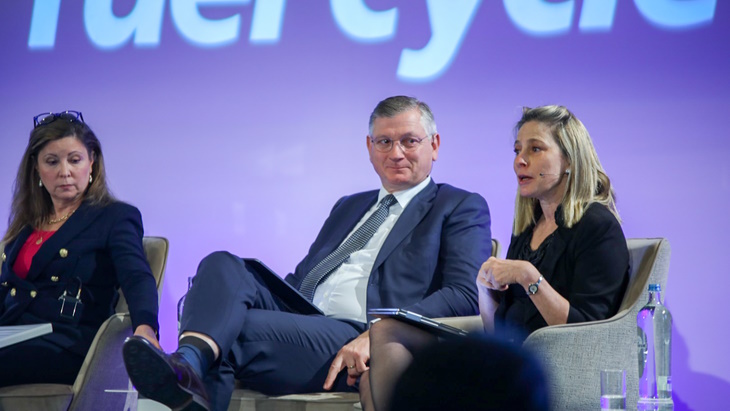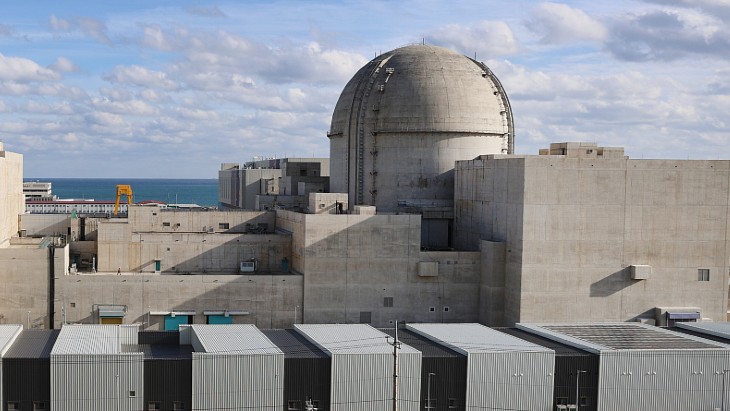"This is a time of great change for the nuclear industry," Boris Schucht, CEO of Urenco, said. Climate change is one of three drivers for this change - without nuclear it will be "impossible" to meet decarbonisation targets, and nuclear is the perfect CO2-free baseload complement to renewables and hydrogen, which will be a particular consideration for difficult-to-decarbonise sectors, he said. However, the industry must "do its homework" and strive to become CO2-free itself. "We all have to become climate activitists," he said. Urenco has pledged to achieve net-zero carbon emissions by 2040.
The war in Ukraine had "opened the eyes" of the world to importance of security of energy supply - the second driver for nuclear energy change identified by Shucht. The momentum that comes as countries expand or extend the operating lives of their plants, is the third driver for change, he said.
The nuclear industry is building momentum in a way that has not been seen for decades - but for this momentum to continue to build, the nuclear industry must deliver "success stories" like the start-ups of nuclear units at Barakah in the UAE and, most recently, the Olikluoto 3 plant in Finland, he said. Delivering on time is even more important than delivering on budget: the challenge will be to not be "too late" to address the climate crisis.
To the drivers outlined by Schucht, World Nuclear Association Director General Sama Bilbao y León added the third dimension of equity: energy "for everybody, everywhere". Alongside European countries that now recognise the vital role of nuclear as clean energy in policy, and plans to continue, resume or accelerate nuclear growth in countries such as China, India, Japan and Korea, there are other countries around the world looking to follow suit, she said. Turkey is set to become the newest country to join the nuclear producers, with fuel set to be loaded into the first unit at Akkuyu within weeks.
"We've never been in a time like this," Nuclear Energy Institute President and CEO Maria Korsnick said. "We've gone from 'can we build it?' to 'can we build it fast enough?'," she said. Nuclear is receiving unprecedented levels of bipartisan support at the national level, while more than 200 bills to support or advance nuclear energy are currently before state legislatures. Nuclear energy is the "puzzle piece that makes it all work" Korsnick said.
Completing the puzzle
Underlying this is fuel: the situation in Ukraine has sharpened attention on the origins of nuclear fuel supply, with countries aligning to "step away" from the Russian supplies they have previous relied on.
As well as the fuel cycle facilities supporting existing reactor technology, developments such as LEU+ fuel (with uranium enriched up to 10%), accident tolerant fuels and fuels for advanced reactors will also need to be supported.
"The fact remains there's going to be an enormous need for growth everywhere," Bilbao y León said. This will need finance - and clarity and pragmatism in policies will help the financial community better understand the needs of the nuclear industry, and send the market signals to drive fuel cycle growth.
But to achieve this, the nuclear industry needs to ensure it diversifies its workforce, she added. "If we are going to build and operate all these extra gigawatts, we need to attract the best talent. We need to work harder to become truly inclusive," Bilbao y León said.
"If you have nuclear, you have all your bases covered."
WNFC 2023 is co-organised by the Nuclear Energy Institute and World Nuclear Association and is taking place in The Hague from 19-20 April.





_30199.jpg)
_72306.jpg)







